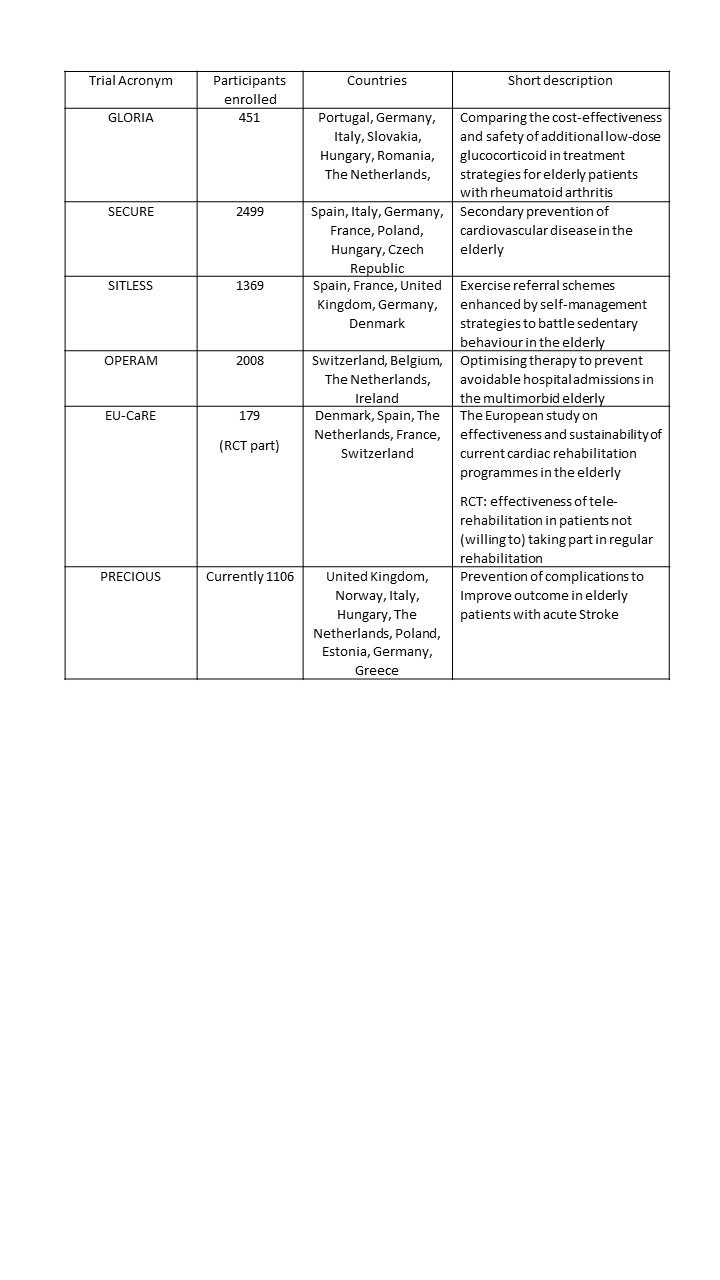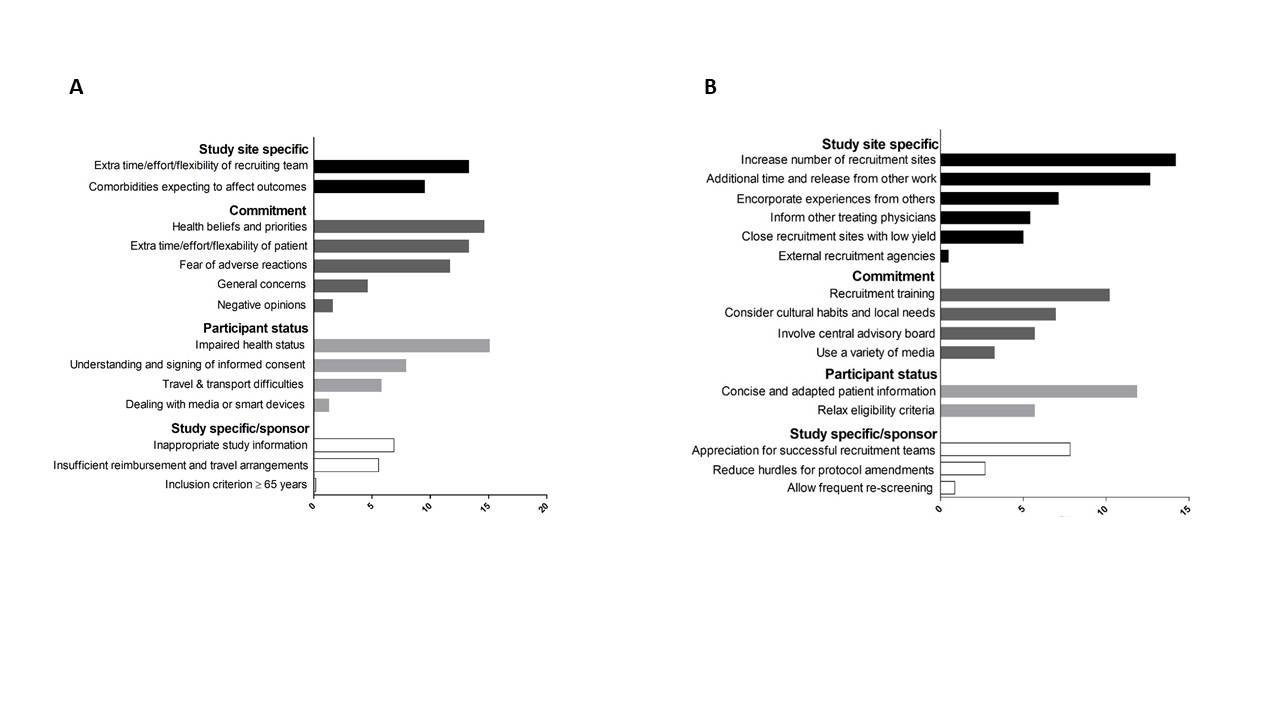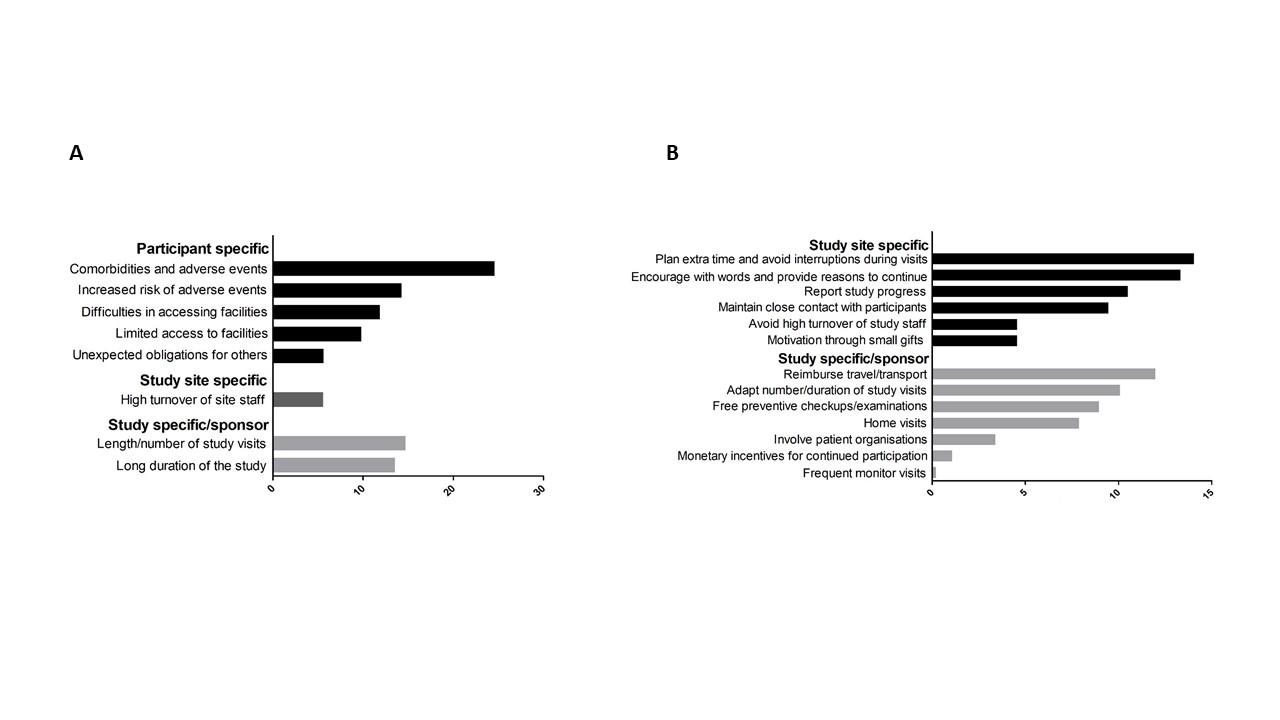Session Information
Session Type: Poster Session B
Session Time: 8:30AM-10:30AM
Background/Purpose: Older people remain underrepresented in clinical trials, and evidence generated in younger populations cannot always be generalized to older patients.
We aimed to identify key barriers and to discuss solutions to specific issues affecting recruitment and retention of older participants in clinical trials based on experience gained from six current European randomized controlled trials (RCTs) focusing on older People (Table 1).
Methods: A multidisciplinary group of experts including representatives of the six RCTs held two networking conferences and compiled lists of potential barriers and solutions. Every item was subsequently allocated points by each study team according to how important it was perceived to be for their RCTs.
Results: The six RCTs enrolled 7612 older patients (Table 1). Key barriers to recruitment were impaired health status, comorbidities and diverse health beliefs including priorities within different cultural Systems (Figure 1A). All trials had to increase the number of recruitment sites. Other measures felt to be effective included the provision of extra time, communication training for the study staff and a re-design of patient Information (Figure 1B). Key barriers for retention included the presence of severe comorbidities and the occurrence of adverse events. Long study duration, frequent study visits and difficulties accessing the study site were also mentioned (Figure 2A). Solutions felt to be effective included spending more time maintaining close contact with the participants, appropriate measures to show appreciation and reimbursement of travel Arrangements (Figure 2B).
Conclusion: Recruitment and retention of older patients in trials requires special recognition and a targeted approach. Our results provide scientifically-based practical recommendations for optimizing future studies in this population.
B: Solutions in retention. Mean number of points awarded per item (standard error range: 0,21 – 4,47). The more points an item got, the more relevant it was perceived to be for the respective trial.
B: Solutions in retention. Mean number of points awarded per item (standard error range: 0,21 – 4,47). The more points an item got, the more relevant it was perceived to be for the respective trial.
To cite this abstract in AMA style:
Buttgereit T, Palmowski A, Forsat N, Boers M, Witham M, Rodondi N, Moutzouri E, Quesada Navidad A, van’t Hof A, van der Worp B, Coll-Planas L, Voshaar M, de Wit M, Pereira da Silva J, Stegemann S, Bijlsma J, Koeller M, Mooijaart S, Kearney P, Buttgereit F. Barriers and Potential Solutions in the Recruitment and Retention of Older Patients in Clinical Trials – Lessons Learned from Six Large Multi-center Randomized Controlled Trials [abstract]. Arthritis Rheumatol. 2021; 73 (suppl 9). https://acrabstracts.org/abstract/barriers-and-potential-solutions-in-the-recruitment-and-retention-of-older-patients-in-clinical-trials-lessons-learned-from-six-large-multi-center-randomized-controlled-trials/. Accessed .« Back to ACR Convergence 2021
ACR Meeting Abstracts - https://acrabstracts.org/abstract/barriers-and-potential-solutions-in-the-recruitment-and-retention-of-older-patients-in-clinical-trials-lessons-learned-from-six-large-multi-center-randomized-controlled-trials/



